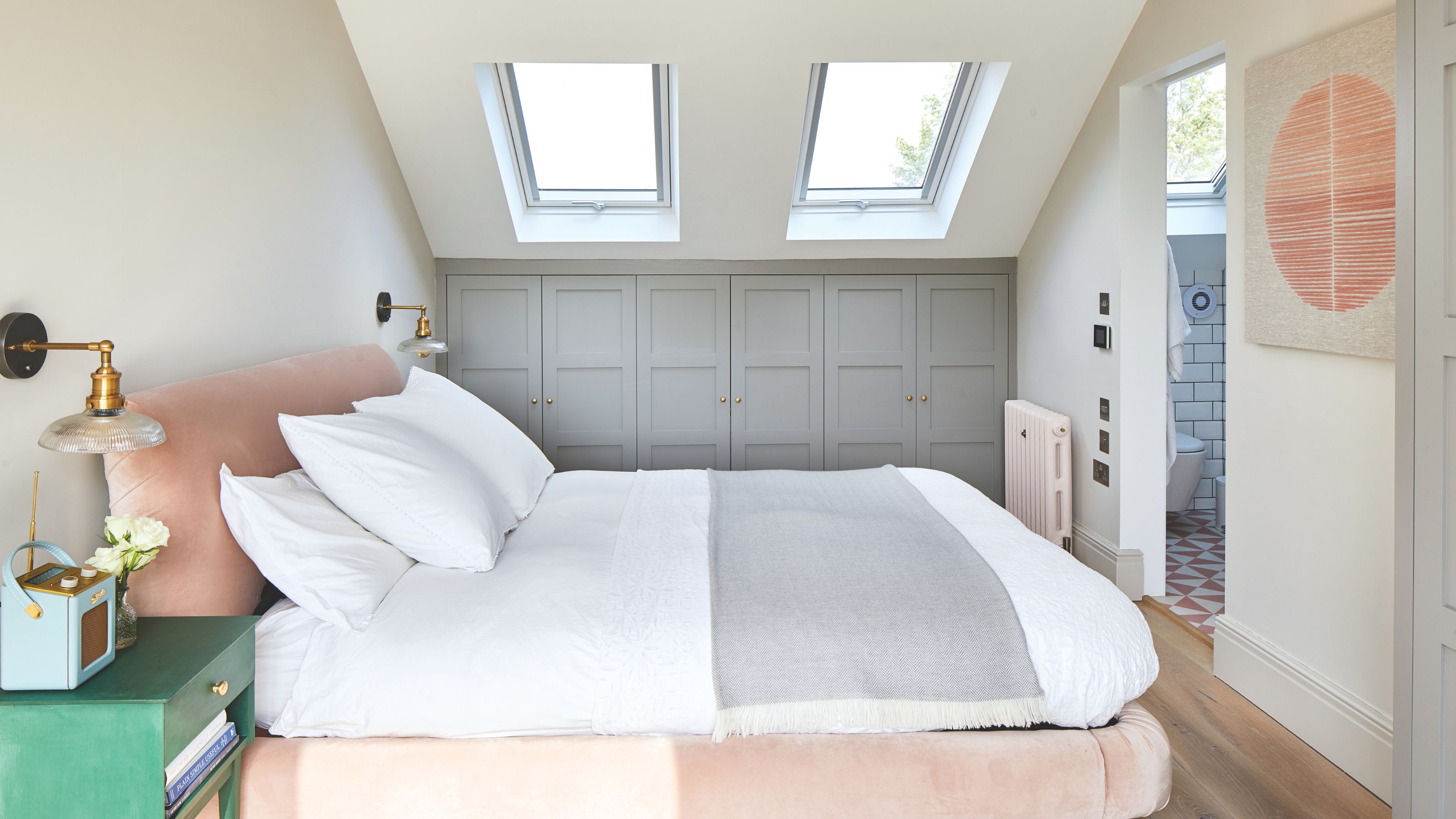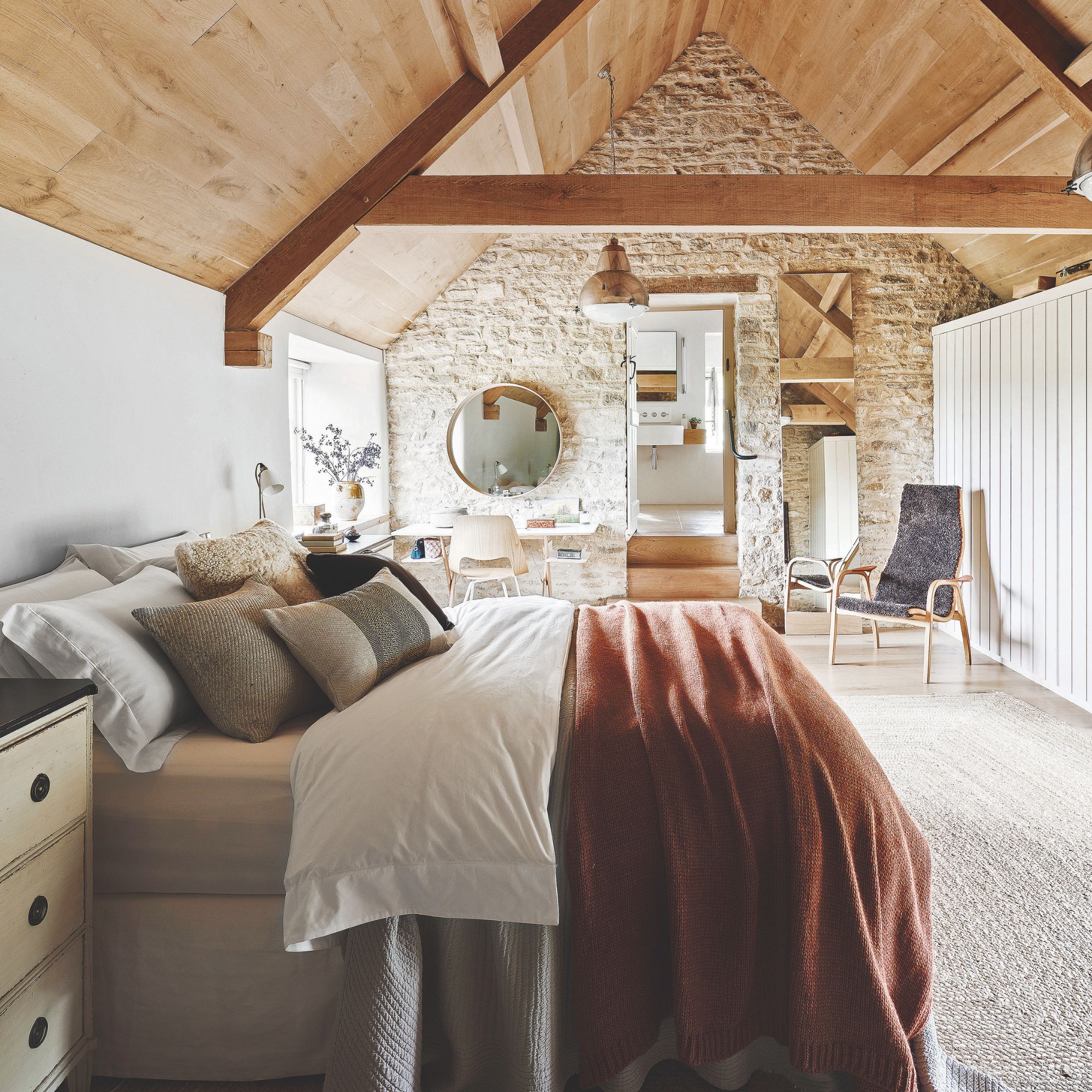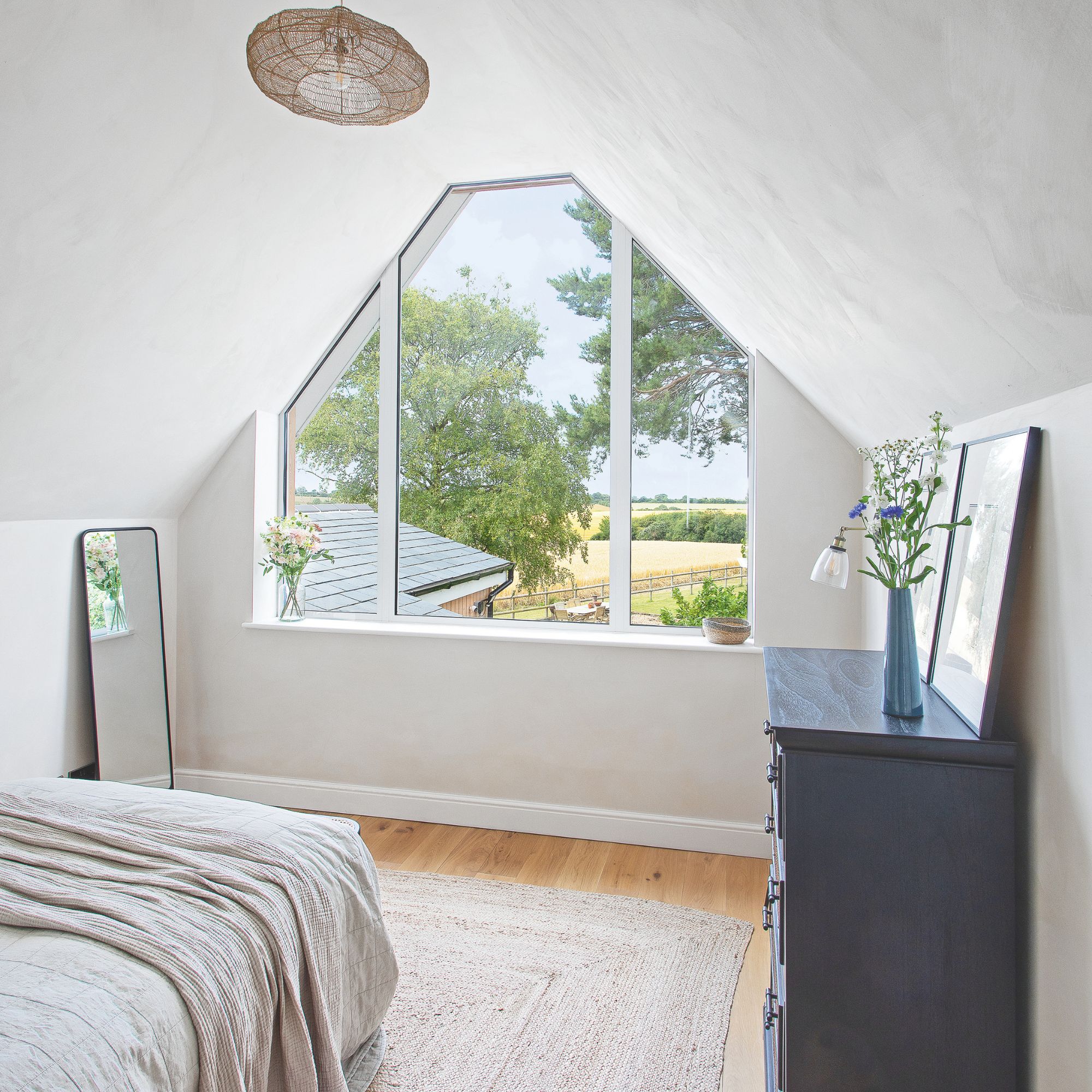Can my neighbour stop me from converting my loft? I asked 3 legal experts where you stand and how to resolve the conflict
Find out which objections have merit and how to resolve them


Sign up to our newsletter for style inspiration, real homes, project and garden advice and shopping know-how
You are now subscribed
Your newsletter sign-up was successful
Planning major changes to your home, like doing a loft conversion, can raise concerns with those who live nearby, especially if it could impact their home. But can a neighbour actually stop you from converting your loft?
There'll be a lot to consider when you plan a loft conversion and that last thing you want is for your home improvement plans to sour relations with your neighbours. But what can you do if they don't appear to be on board with your loft conversion ideas?
I asked legal experts if and when neighbour objections can halt your project, and what you can do to ensure your loft conversion runs smoothly while maintaining a good relationship with those who live next door.
Can my neighbour stop me from converting my loft?

While a neighbour might object to your loft conversion plans, they can't stop your project from going ahead just because they don't want you to do it.
However, if their objections are based on a flouting of rules or regulations, then it could be a different story. I look at some common reasons a neighbour might object to your loft conversion, and reveal whether these could put a stop to your project.
If they object on the grounds of planning permission...

If your loft conversion doesn't meet the planning rules, then a neighbour's objection could put a stop to your project. So make sure you check with your local planning authority whether your loft conversion will need planning permission before you start building.
Katie Lewis, Partner at Broadfield says: ‘Whilst loft conversions can be considered to be permitted development providing certain conditions are met, that is the ability to make certain alterations to a property without the need to apply for specific planning consent, a neighbour could still potentially object.
Sign up to our newsletter for style inspiration, real homes, project and garden advice and shopping know-how
‘They could firstly object to the local authority who could inspect the works and decide whether the works violate the limitations or conditions attached to permitted development.
'In the event that the work complies then from a planning perspective your development cannot be blocked.'
If it doesn't comply and you need to apply for planning permission, your neighbour will have an opportunity to object at this stage.
But only certain objections will be taken in to consideration by the local planning authority. Fergus Charlton, planning partner at national law firm Michelmores, explains: ‘Objections need to be planning objections. Amenity impact, be that noise or visual overlooking, will play their part in the determination of the application. So too might material considerations in the planning balance, such as a right to light, or impacts on protected species.’
Should the planning department find these objections valid, then your planning application may be rejected, which means your project won't be able to go ahead until changes are made to your plans. If it is approved, you may find the planning conditions attached relate to alleviating your neighbours concerns.
If they object on the grounds of a restrictive covenant...
Even if the scope of a loft conversion project falls within Permitted Development, a neighbour can object if the work will contradict a restrictive covenant, which could limit the alterations that could be made to your home.
Katie explains: 'It is also worthwhile, prior to the works commencing, checking whether there are any relevant restrictive covenants affecting your property, which in principle could then be enforced by your neighbours or others.'
If there is a valid restrictive covenant in place, you may be prevented from doing the work altogether, or need to alter your plans to ensure the covenant is not broken.

If they object on the grounds of having a shared wall...
Should your loft conversion plans involve a wall that you share with another property, then that could potentially be grounds for a neighbour objection. ‘If you live in a mid-terrace, semi-detached home, or any property where a wall is shared by the two properties – known as a party wall – then a legally-binding document called a party wall agreement is required,' explains Jagdeep Sandher, partner and head of civil litigation at Blythe Liggins Solicitors.
'This is because the work will involve cutting into the party wall, so it is an agreement between the homeowners on each side which is designed to protect both parties.'
A party wall notice should be issued to your neighbour before work starts, and if you ignore the Party Wall Act, then your neighbour may be able to apply for an injunction to prevent the work from starting.
However, if you issue the notice and they refuse to come to an agreement, then you can get a party wall surveyor on board to resolve the stalemate.
If they object on the grounds of noise and disruption...
The noise and disruption of a potential building project could cause your neighbour to object, but these objections are unlikely to prevent you from being able to undertake the work.
'It is however important to consider whether the works would negatively impact your neighbours; for example, your neighbour may have concerns about their privacy being impacted upon, or construction noise,' suggests Katie. 'In such cases, the preferable course of action will be to come to an amicable agreement with your neighbour, by making reasonable adjustments where possible, such as limiting the times when the construction work (or at least the noisy elements such as drilling) will be undertaken.'
Given the relatively short timeframe of a loft conversion project, any attempt by your neighbour to pause your project on the grounds of noise are likely to be unsuccessful.
What should I do if my neighbour objects to my loft conversion?

If your neighbour has raised objections, then the best thing to do is hear them out and see where you may be able to alleviate their concerns if you want your project to run smoothly.
If they are worried about potential damage to their property in the process of you converting your loft, then having a party wall agreement in place will help quiet their concerns.
Keeping noise to a minimum between certain times will also help.
You should also make sure that you have all the necessary permissions and agreements in place, and that you are not contravening any restrictive covenants.
Even if none of these apply, you should also ensure that your project is constructed in accordance with building regulations.
How can I avoid neighbour objections in the first place?
If you can, it's better all round to avoid conflict arising between you and your neighbours in the first place.
The best way to do this is to communicate your plans early on, and keep them updated as the project progresses so they don't feel blindsided, which could cause tensions to rise.
If they raise any initial concerns that are easy for you to resolve, then its worth doing to keep things sweet.

What should I do if I object to my neighbours loft conversion plans?
If the shoe is on the other foot and you are the one objecting to your neighbour's loft conversion plans, then you'll need to have clear, legal reasons on which to object. This could be around planning permission, restrictive covenants or issues where a party wall is involved.
For other objections that potentially don't have a legal recourse, the best thing to do is to take the time to communicate with your neighbours and try to reach a mutual agreement.
If you decide to convert other unused space in your home, like a garage, you'll also need to know whether a neighbour can stop your garage conversion from going ahead.

Sarah Handley is Ideal Home’s Renovation and Home Editor. She joined the team full time in September 2024, following three years of looking after the site's home finance content. As well being well versed in all things renovation, Sarah is also a home energy expert, covering all aspects of heating and insulation as well as tips on how homeowners can reduce their energy usage. She has been a journalist since 2007 and has worked for a range of titles including Homebuilding & Renovating, Real Homes, GoodtoKnow, The Money Edit and more.